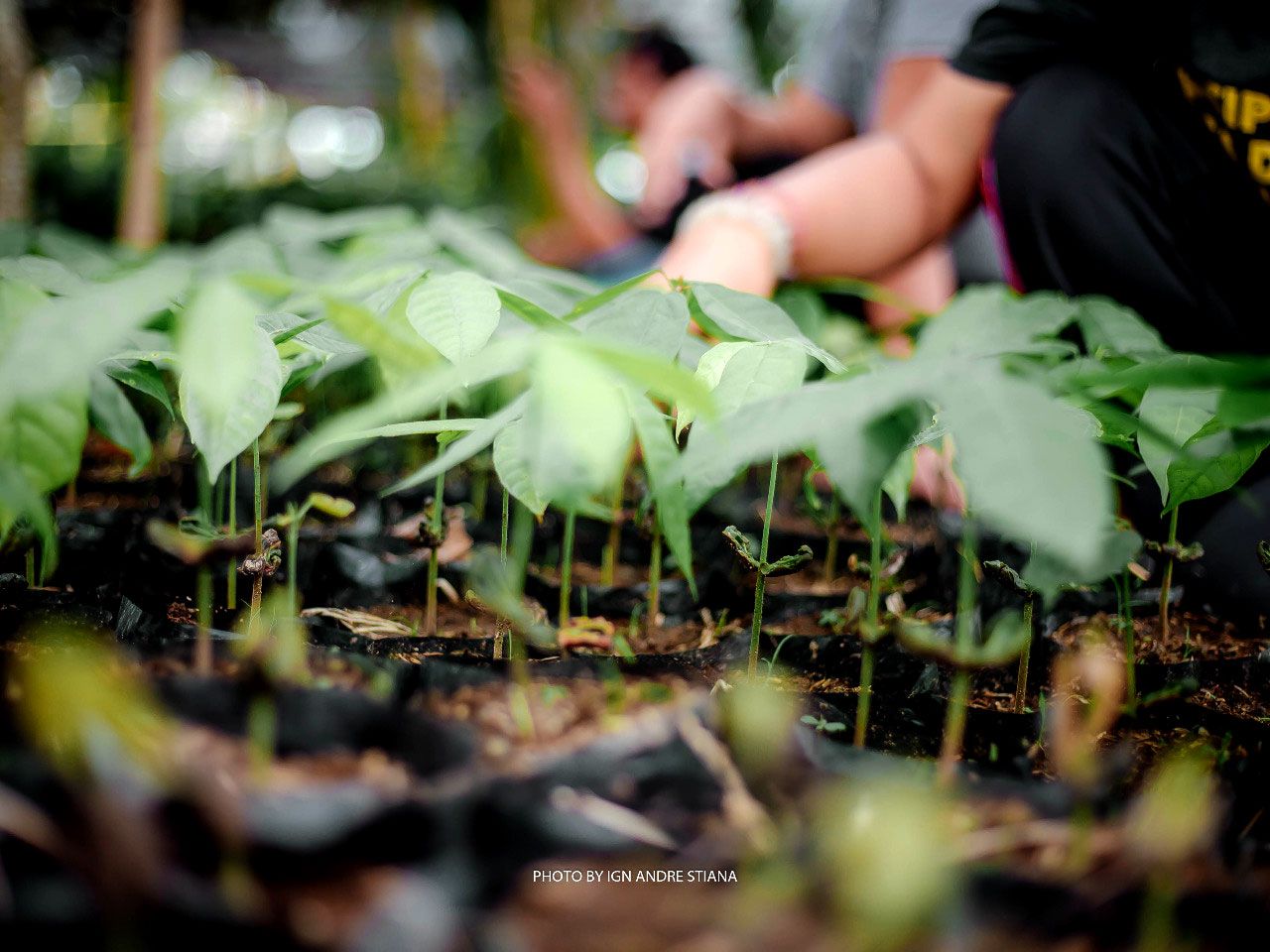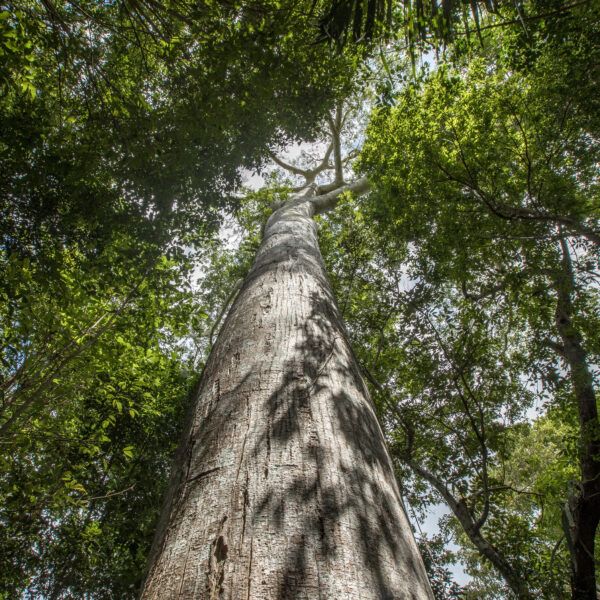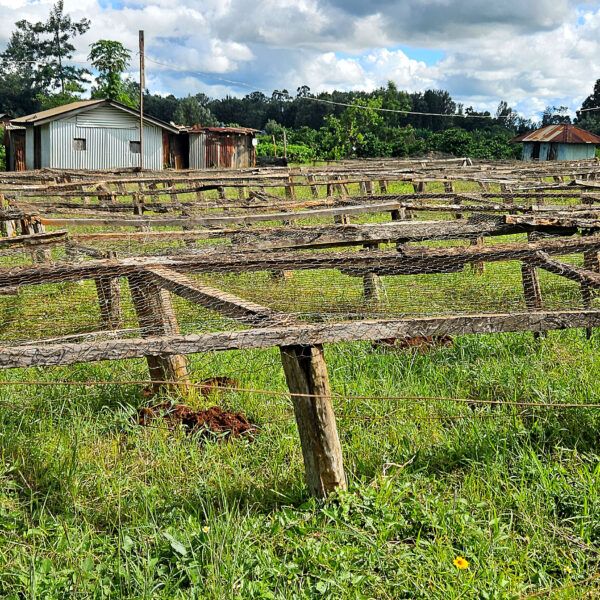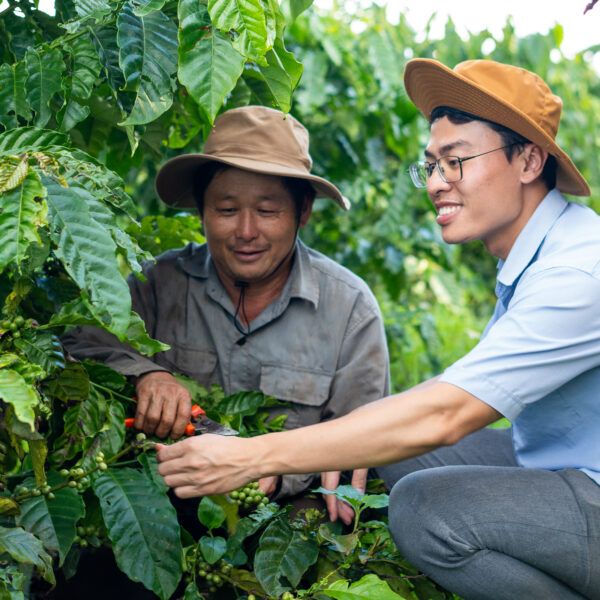The word “advocacy” is often associated with a certain single-mindedness—picture someone passionately arguing on behalf of a specific policy position—but the story of Agung Widi and the Indonesian NGO she founded shows how advocacy can be a deeply personal and inclusive process.
Through her Kalimajari Foundation, Agung works with KSS (Kerta Samaya Samaniya), a cocoa cooperative in Jembrana, Bali, to facilitate its adoption of more sustainable farming practices that boost incomes, while protecting nature. Like the Rainforest Alliance, she sees advocacy as a tool for bringing people together on an even footing to share information so that they can build mutual understanding.
More than 95 percent of Indonesia’s cocoa is produced by smallholder farmers, and many of them face extreme poverty. When Kalimajari began working with KSS in 2011, the cooperative was struggling with unproductive cocoa trees, plant diseases, and financial problems. To help them improve their livelihoods, Agung and her team encouraged farmers to work toward sustainability and apply for certification, a feat that KSS achieved in 2012.
Sign up for useful tips to green your life and protect our planet.
A new approach to an old problem
However, there was another major hurdle to overcome. Agung saw an opportunity for Jembrana’s cocoa farmers to reach quality markets, but first they would have to begin fermenting their beans, a break with tradition that they were reluctant to make. Fermentation is essential for transforming the bean’s natural bitterness and developing the rich aromas and flavors found in premium cocoa, but the process requires expertise and effort.
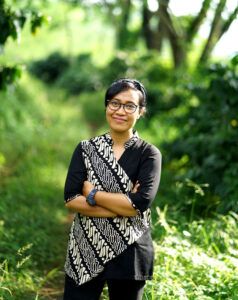
Agung’s advocacy efforts began with the cooperative and the farmers’ themselves. “Informal meetings—like talking person to person with the families during afternoon tea—is powerful, to know each other,” she says, “because we want to build an equal partnership between KSS leadership and the members.”
During these meetings, she discovered the reason for farmers’ hesitation to move out of their comfort zone: the extra work and cost that fermentation required was not yet generating higher prices. That knowledge propelled her to take a different approach, looking instead for a buyer that was willing to pay a premium for the added value. In 2013, Kalimajari helped facilitate a deal between KSS and leading French chocolate-maker Valrhona, which would source only fermented cocoa.
Scaling up success across Indonesia’s cocoa industry
With the support of the Rainforest Alliance and a strong working relationship with Valrhona, Kalimajari helped farmers get up to speed on better cocoa processing techniques, bringing in a local expert and translating various training materials into the Balinese language. In addition to applying good agricultural practices in the field, the cooperative also implemented a new centralized system for drying and fermenting the beans, which has improved cocoa consistency and made it easier to track any problems. The result? More than 600 smallholders doubled their income, allowing them to send their children to school, and rural unemployment rates in the area were reduced.
In fact, the undertaking was such a success that it is being scaled up as part of a much larger Rainforest Alliance initiative known as TRACTIONS, which involves seven independent cocoa cooperatives across Indonesia, including KSS in Jembrana. Beyond learning about fermentation, farmers receive training in sustainability, climate-smart practices, financial literacy, and business skills. And thanks to the establishment of community-run nurseries, they’ll also be able to replace their aging cocoa plants.
Kalimajari and KSS have become role models to the other six cooperatives, sharing not just lessons learned but also their current list of buyers. But the benefits go both ways. Agung describes KSS as a single fighter that needs allies. Through meetings with all seven cooperatives, seven local governments, and more than 3,000 farmers across the seven districts, everyone learns from each other. “By working together, we can show to the world … that we can produce the specialty cocoa ourselves, directly from the smallholders.” She adds, “I always say to the other cooperatives, ‘You must believe.’”
Ensuring that community voices are factored into policy decisions
While Agung’s passion for cocoa and community development makes her a natural advocate, she has strengthened her voice thanks to the Rainforest Alliance’s global advocacy team, which partners with local NGOs around the world, connecting them to those who make policy decisions and providing advocacy training.
Agung played a key role in lobbying the Jembrana government to join the TRACTIONS consortium, promote cocoa fermentation, and implement local regulations that protect the district’s cocoa smallholders. Her NGO has been able to increase opportunities for women and youth in the cocoa sector, as well as influencing regulation and budgets to support farmers who are working more sustainably. When Kalimajari had its first meeting with the Jembrana government in 2013, the district’s budget for cocoa was 180 million Indonesian Rupiah (approximately US$ 12,000), but by 2017 it had more than quintupled, to one billion Rupiah. These funds have helped farmers invest in better equipment, like solar dryers, and make other improvements.
But Agung has also had an impact on national policy. While serving as the chair of the Cocoa Sustainability Partnership’s general assembly from 2019 – 2020, she presented Kalimajari’s Indonesia-focused model for quality cocoa production, which encourages smallholders to engage in fermentation, and it was immediately adopted by the Ministry of Agriculture.
Everything she does seems focused on strengthening relationships to improve the well-being of these rural communities. Ultimately, she sees her role as that of a facilitator. “I’m not the hero,” she says, “but I have knowledge, and I want to share what I know with others. To me, that’s what it means to be human.”
